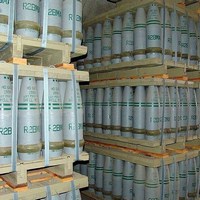In late-August and early September, when the Obama administration was still seeking to generate support for the use of force against Syria after Damascus had crossed the “red line” of large-scale use of chemical weapons, one of the arguments it used was that failure to do so would undermine the credibility of America’s threat to strike Iran if Tehran ever built nuclear weapons. That argument may have been true at the time, but the situation has become more complex since the U.S. and Russia reached an agreement to disarm Syria’s chemical weapons peacefully. By explicitly stating, partly for domestic reasons in order to win the backing of Congress and public opinion, that the major stake in Syria was Iran, the Obama administration has tied its Iran policy to the outcome of the Syria deal.
Tehran is now even more likely to draw its own lessons on the nuclear issue from what happens in Syria. What will these lessons be? Several different scenarios for the coming months have to be considered. Given the broader geostrategic implications for the Middle East and beyond, these scenarios are not as straightforward as one might believe, and none of them lead inexorably to a single conclusion.
1. The Syrian chemical weapons deal is successfully implemented. Ideally, in this scenario, Tehran would conclude that it is possible to reach an agreement with the international community without jeopardizing the survival of the Iranian regime. Namely, Iranian Supreme Leader Ayatollah Ali Khamenei’s skepticism over Western intentions would be less credible, and President Hasan Rouhani’s more conciliatory position would be reinforced. Russia would also feel vindicated: In an effort to show that it now holds the keys to crisis management in the Middle East, Moscow would probably do its best to contribute to a peaceful resolution of the Iranian crisis. Israel might be inclined to consider ratifying the Chemical Weapons Convention, given that Syria would have become the third Arab state in recent years to verifiably give up such weapons, after Iraq and Libya. Discussions to establish a WMD-free zone in the Middle East would be given a boost. This would obviously seem to be the best possible outcome. But what if Tehran instead inferred from such a result that Washington has become a paper tiger and now welcomes any opportunity to avoid military action? This could reinforce the hard-liners’ views in Tehran, thus making a deal on the nuclear program less probable.

